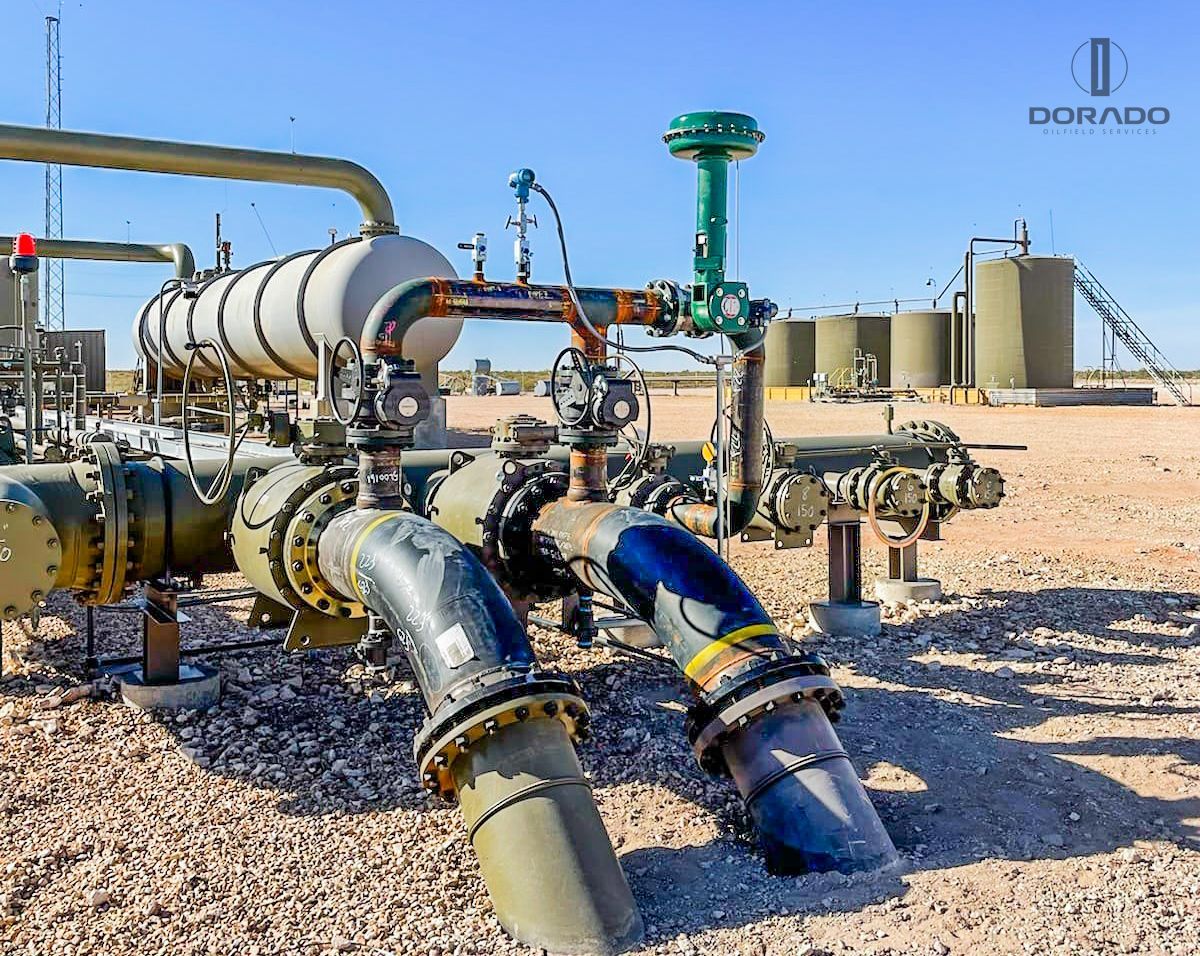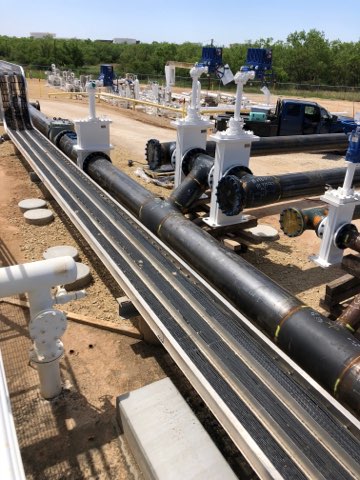The Role of Pipeline Construction Services in Modern Infrastructure
The Important Overview to Understanding Pipeline Construction Providers and Their Significance
Pipeline Construction solutions are fundamental to the transport of necessary resources such as gas, oil, and water. These solutions involve thorough planning and implementation, sticking to strict safety and security and environmental criteria. As the market adapts to contemporary obstacles, recognizing its effects and components comes to be progressively crucial. What factors add to the expanding significance of these solutions in today's economic situation? The following sections will certainly explore these important facets.
Overview of Pipeline Construction Services
Pipeline Construction solutions incorporate a series of activities important for the installation and maintenance of pipelines utilized to deliver numerous materials, consisting of gas, water, and oil. These solutions are essential for ensuring the effective and risk-free motion of resources from one area to an additional. The procedure commonly starts with extensive preparation and design, which thinks about regulatory requirements, ecological factors to consider, and logistical obstacles.
Excavation and grading of the land are carried out to prepare the site for Pipeline installment once planning is total. This is adhered to by the real laying of the pipes, which involves welding or joining areas together to develop a continuous circulation course. After installation, extensive testing is executed to ensure integrity and security. Maintenance services are additionally offered to address any type of issues that might develop with time. In general, Pipeline Construction services play an essential role in supporting infrastructure for power and water circulation.
Key Elements of Pipeline Construction
An effective Pipeline Construction job relies upon numerous crucial components that ensure the secure and efficient setup of the Pipeline system. Initially, complete site assessments are essential, as they identify the environmental and geographical elements that might affect Construction. Next off, the selection of appropriate materials, such as fittings and pipes, is important for securing longevity and compatibility with the moved materials.
Additionally, advanced Construction strategies, including trenchless technology and directional boring, improve effectiveness and minimize ecological effect. Effective project administration is another crucial component, collaborating labor, devices, and timelines to fulfill job goals.
Additionally, interaction amongst stakeholders, consisting of designers, professionals, and local authorities, assurances positioning on task requirements and demands. Lastly, comprehensive quality assurance measures throughout the Construction procedure make certain compliance with market standards and make best use of the Pipeline's operational life-span. Collectively, these parts develop the foundation of an effective Pipeline Construction project.
Security Requirements and Laws in Pipeline Construction

Regulatory bodies, such as the Occupational Security and Health Administration (OSHA) and the Pipeline and Hazardous Products Security Management (PHMSA), stated certain requirements that control Construction practices. These consist of procedures for tools use, employee training, and emergency situation action procedures. By carrying out these requirements, Construction firms not just secure their staff members however also safe and secure public count on. Inevitably, extensive safety and security actions contribute to the long-lasting success of Pipeline tasks, ensuring they fulfill both ecological and operational expectations.
Environmental Factors To Consider in Pipeline Projects

Ecological factors to consider are important to the planning and implementation of Pipeline projects. These projects must assess possible effect on environments, water resources, and local wildlife. Carrying out comprehensive ecological influence analyses (EIAs) is crucial, allowing stakeholders to identify and reduce risks before Construction begins.
Protecting sensitive areas, such as environments and wetlands, typically calls for implementing particular style attributes or different routing to decrease disturbance. Additionally, Pipeline drivers are tasked with establishing strategies for stopping spills and leakages, which can have damaging impacts on the setting.
Engagement with local communities is important, as public worries can cause project adjustments that enhance environmental management. Conformity with laws established by ecological agencies ensures that projects satisfy sustainability requirements, cultivating a balance between infrastructure needs and environmental preservation. Ultimately, addressing ecological factors to consider not just safeguards nature however additionally promotes area count on and job viability.
The Role of Innovation in Pipeline Construction
Innovation plays a vital function in modern Pipeline Construction, enhancing efficiency and accuracy. Advanced surveying methods permit specific planning and execution, lessening environmental impact and job delays. In addition, the combination of automation and robotics streamlines operations, minimizing labor prices and enhancing safety on Construction sites.
Advanced Evaluating Methods
Advanced checking methods play a necessary role in the successful execution of Pipeline Construction jobs. These methods utilize advanced technology to ensure precise mapping and evaluation of the surface where pipelines will certainly be set up. Techniques such as Geographic Information Equipment (GIS), LiDAR (Light Discovery and Ranging), and 3D modeling enable engineers to examine the landscape and visualize, determining prospective challenges and ecological issues. By using these innovative devices, groups can useful reference improve accuracy in positioning and alignment, substantially decreasing the danger of mistakes during Construction. In addition, real-time information collection enables immediate changes and informed decision-making throughout the project lifecycle. Inevitably, these checking innovations add to boosted effectiveness, safety and security, and sustainability in Pipeline Construction initiatives.
Automation and Robotics

Economic Effect of Pipeline Framework
Pipeline framework plays an important duty in facilitating and shaping local economic situations profession. By supplying a reliable ways of transferring oil, gas, and various other products, pipelines minimize transportation costs and boost supply chain effectiveness. This facilities attracts investment, boosts job creation, and promotes financial development in bordering areas.
The Construction and maintenance of pipelines contribute significantly to local economies, producing numerous work possibilities in numerous fields, from engineering to labor. The increase of work commonly results in enhanced costs in local companies, additionally strengthening financial activity.
Additionally, pipelines enhance power safety by making certain a secure supply of sources, which is important for commercial operations and residential demands. As regions end up being adjoined via Pipeline networks, they get to broader markets, raising competitiveness and financial durability. Subsequently, the economic effect of Pipeline framework is complex, affecting their website both instant regional economic situations and broader local advancement.
Future Patterns in Pipeline Construction Services
The future of Pipeline Construction services is advancing in response to technological improvements, governing adjustments, and growing ecological considerations. Technologies such as robotics and drones are simplifying examination and upkeep processes, improving safety and performance. Automation is poised to decrease labor costs and raise precision in Construction operations. Furthermore, the boosting emphasis on sustainability is motivating business view to embrace green products and methods, straightening with global efforts to reduce carbon footprints.
Regulative structures are additionally adapting to attend to environmental influences, pushing for greater transparency and responsibility in Pipeline tasks. The integration of wise technologies, including real-time surveillance systems, is expected to enhance the reliability and performance of Pipeline networks. As power needs change towards eco-friendly sources, Pipeline Construction solutions will likely see a surge in jobs associated to biofuels and hydrogen transport. On the whole, these trends indicate a transformative period for the Pipeline Construction industry, concentrated on development and sustainability.
Often Asked Questions
What Kinds of Pipelines Are Frequently Constructed?
Various kinds of pipelines are commonly built, including oil, sewage, gas, and water pipelines - Pipeline Construction Services. Each offers distinctive objectives, helping with the transportation of necessary resources across regions while sticking to security and environmental laws
For how long Does a Normal Pipeline Task Take?
The duration of a regular Pipeline task varies substantially, typically ranging from several months to a couple of years. Aspects affecting this timeline consist of task complexity, regulatory approvals, and ecological considerations that need to be dealt with.
That Manages Pipeline Construction Business?
Pipeline Construction business are regulated by numerous government, state, and regional agencies, including the Pipeline and Hazardous Products Safety Management (PHMSA) and state utility compensations, making certain conformity with safety and environmental standards throughout the Construction procedure.
What Prevail Materials Utilized in Pipeline Construction?
Common materials used in Pipeline Construction include steel, pvc, and polyethylene. Each material uses distinct advantages such as resistance, adaptability, and toughness to rust, making them ideal for different applications in transporting gases and fluids.

Just How Are Pipeline Construction Expenses Approximated?
Pipeline Construction costs are estimated by evaluating variables such as material expenses, labor rates, task complexity, environmental considerations, and governing demands (Pipeline Construction Services). Precise cost estimate assurances reliable budgeting and job preparation throughout the Construction process
Pipeline Construction services incorporate an array of activities essential for the installment and maintenance of pipes utilized to deliver numerous substances, including gas, oil, and water. A successful Pipeline Construction job depends on numerous key parts that assure the effective and safe installation of the Pipeline system. Advanced surveying strategies play a necessary function in the effective execution of Pipeline Construction tasks. Various types of pipes are commonly constructed, consisting of oil, gas, water, and sewage pipes. Pipeline Construction costs are approximated by examining elements such as product costs, labor prices, project intricacy, ecological factors to consider, and regulatory requirements.